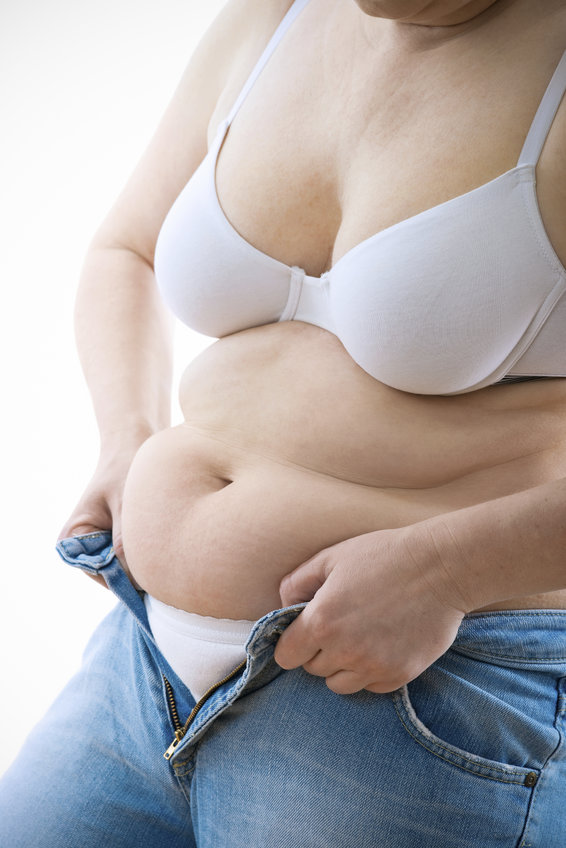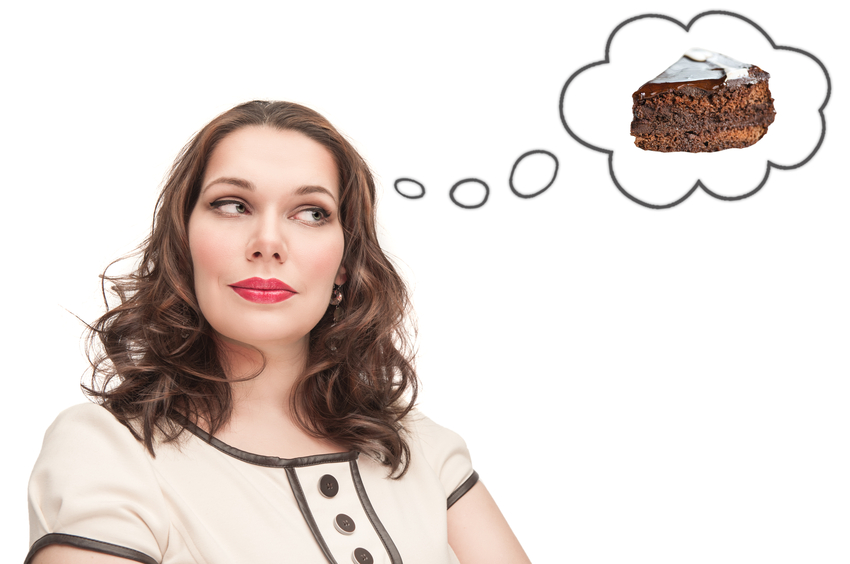Natural Remedies for Your Menopause Symptoms
Menopause Weight Gain Doesn't Mean You're Eating Too Much
Menopause weight gain can be a real puzzle. Sometimes it feels like you’re eating close to nothing but the scale just keeps going up.
It seem as though just thinking about dessert (or pasta or bread or chocolate) makes you fat.
Could that actually be true?

It’s quite possible. You see, our thoughts about food can cause actual physical changes that may lead to weight gain.
A study in the journal Cell Metabolism showed the anticipation of a sweet treat in mice and rats triggers their muscles to start taking up glucose from the blood. They start to get ready for action. But if that muscle does not in fact get to work, the glucose will be stored as fat.
It may well explain why some dieters struggle so much with menopause weight gain.
How does it happen?
The researchers identified the culprit as orexin (probably etymologically related to "Oreo"), a protein contained in neurons in the brain's hypothalamus. Orexin has also been identified as a neurotransmitter involved with pleasure seeking and drug and alcohol addiction.
The idea that our thoughts might trigger a response in our digestive and metabolic systems is not a new one. A 1985 study in the American Journal of Clinical Nutrition noted that it is "well documented that the sight, smell, and taste of food can profoundly affect an organism's physiology."
In particular, it's well known that our mind has the ability to trigger insulin production. It's called the "cephalic phase insulin response." And insulin is the hormone that directs our body to store fat.
How To Beat Menopause Weight Gain
What does all this mean for women struggling with menopause weight gain?
For one thing, it's not just about the food. It's also about our attitude to the food.
The sad truth is that what you don't eat can make you gain weight.

According to Marc David in his book The Slow Down Diet, many dieters deny themselves real food through incredible willpower, but fantasize constantly about what they cannot have. Thinking about dessert or bread or whatever is your forbidden food, puts you into a constant state of cephalic phase insulin response.
In other words, your thoughts produce insulin even though there is no food for that insulin to work on.
"This means that insulin levels will be artificially high and the insulin will be sitting around with nothing to do. By default, this chemical will then perform its secondary function, which is to store fat and inhibit muscle growth," writes David.
This leads to what he calls "non-caloric weight gain."
David advises dieters to eat real food and get the satisfaction that your brain is looking for. "By fighting the biology of the body, we create the very condition we so sincerely struggle to avoid," he warns.
Good point. Eat well, nourish yourself, don't deny your body what it needs, and stop fantasizing about forbidden foods. The rest will take care of itself.





